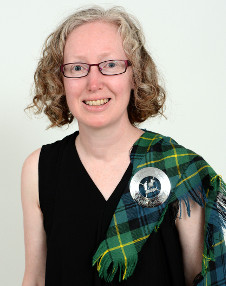 Ally Calder, PhD candidate
Ally Calder, PhD candidate
Physiotherapist Ally Calder assumed stroke survivors would join local gyms to stay active after completing an out-patient circuit training programme she'd prescribed. Discovering how wrong she was led to two revealing postgraduate studies about physical activity for men following stroke.
Ally says, “In hindsight, I am embarrassed now, to have thought they'd continue at a gym. Stroke survivors face many barriers to accessing fitness facilities, which I have now discovered!”
Ally is a Professional Practice Fellow working at the University of Otago's Christchurch campus. Her part-time, distance postgraduate study began as a Masters in Physiotherapy, collaborating with a group of men following stroke, jointly exploring fitness facility accessibility.
Several factors involved
“The group found several factors influenced them to be physically active at fitness facilities. Firstly their personal factors, both psychological (mood, motivation, etc.) and physiological (fatigue, cognition, and the physical impairments of their stroke).
“Secondly, they described built environment factors that made fitness facilities user-friendly or not. Entranceways, bathrooms/toilets and parking were the most problematic features influencing whether they would [use] a fitness facility. Lastly, they talked about the social environment, particularly the attitudes and knowledge of others (health professionals, gym staff, community members, family members and friends).”
Interestingly, Ally says her group went from accepting that not all buildings would have equitable access and they would just have to adapt, to seeing things quite differently – that the environment should adapt to their needs and the needs of others (e.g. parents with pushchairs).
Getting both sides of the story
Ally noticed the men in her group talked a lot about other people's attitudes, but they didn't talk so much about their primary support persons, i.e. their wives/partners. Intrigued, she upgraded her Masters to a PhD (supervised through the School of Physiotherapy) and began a second study exploring the wives' attitudes to and knowledge about physical activity following stroke.
She found wives and their stroke survivor husbands collaborated to make up their own physical activity programme, completely independently of physiotherapists, once they are 'out of care' living in the community.
“The findings suggest a mismatch between physiotherapists' goals and stroke survivor goals. The women stated that for stroke survivors to engage in physical activity successfully, the activities need to incorporate physical, spiritual, social and mental aspects of well-being, as well as being supported by their family/whanau, health professionals, etc.”
Ally is developing an educational resource booklet, capturing the women's insights and top tips for how they go about encouraging their stroke survivor to access physical activity.
“This means, when we finish the booklet, other support people can pick it up knowing it comes from a genuine and authentic source – people living and experiencing the same issues they might be.”
Find out more about the School of Physiotherapy and studying at the University of Otago, Christchurch.